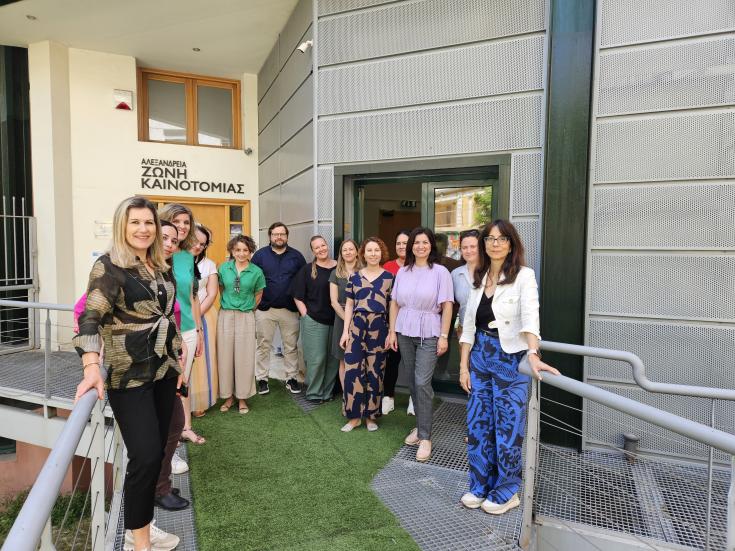Summary of the First Meeting of FISSH Project Partners

About the FISSH Project
The main goal of the FISSH project (Food Industry SMEs Sustainability Support and Help) is to improve the implementation of regional policies in partner regions through interregional exchange of knowledge and best practices. The project focuses on supporting the transformation of food industry SMEs towards sustainable ecological, economic, and social development.
Day One
Ioanna Kouti and Vaso Papadopoulou from ANATOLIKI SA presented the "Intervention Logic of the Interreg Europe Programme," discussing the project's goals, approach, and timeline. Representatives from Central Macedonia, South Ostrobothnia, Kujawsko-Pomorskie Voivodeship, East Flanders, and Coimbra Region presented their policy instruments and planned policy changes. Vaso Papadopoulou concluded the day with a discussion on project management and administrative issues.
Day Two
The second day was dedicated to an in-depth exploration of the three Thematic Focus Areas (TFA) central to the project's core phase. Each area addresses a key aspect of sustainability within the food industry:
-
TFA 1: Eline De Smet presented on business strategies and new sustainable models for food industry SMEs. This focus area, to be coordinated by the Regional Development Fund of Central Macedonia and the Economic Council of East Flanders during the first and second semesters, will explore economic and social sustainability, managerial and legal aspects of strategies, and the role of sectoral exhibitions and sustainability labeling in reaching food industry businesses.
-
TFA 2: Soila Huhtaluhta discussed the sustainability of the food production process and product value chain. Coordinated by ANATOLIKI SA and Seinäjoki University of Applied Sciences during the third and fourth semesters, this focus area will address technical and environmental points of sustainability, including waste management, sustainable packaging, carbon footprint reduction, and the importance of digitalization.
-
TFA 3: Sanna Inkeri presented on marketing and consumer perspectives of sustainable food products. This area, to be coordinated by the Coimbra Region Intermunicipal Community and the Regional Council of South Ostrobothnia during the fifth and sixth semesters, will focus on legislation and labeling, consumer education, and the impact of digitalization on consumer behavior and e-commerce.
Ilkka Latomäki then presented the framework for evaluating good practices, highlighting the criteria based on the Sustainable Development Goals. The day concluded with Małgorzata Kruk-Szarszewska presenting the draft communication strategy and showcasing the project's social media accounts and initial video content.
The next in-person meeting of the partners will take place in the second semester in East Flanders, Belgium, with online meetings planned before the first report.